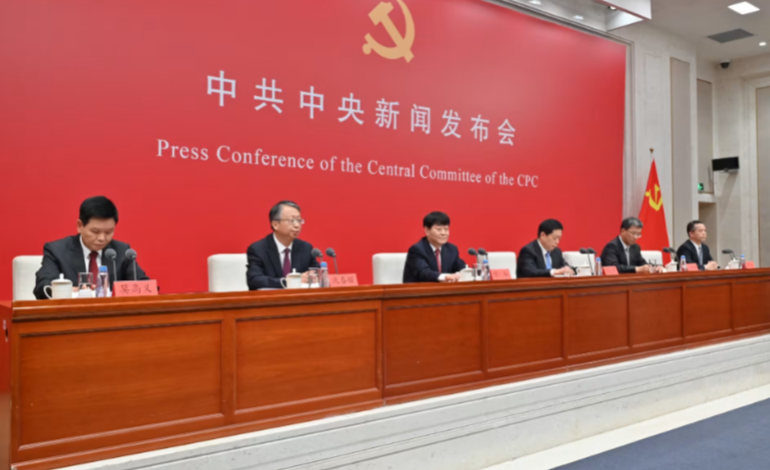In a major economic move, China unveiled a ¥10 trillion ($1.4 trillion) package aimed at addressing domestic economic challenges, potentially influenced by concerns about future trade tensions with the US under President Donald Trump’s administration.
The ambitious package, introduced by Finance Minister Lan Fo’an, will provide local governments with the capacity to issue special-purpose bonds to refinance significant off-balance-sheet debt and support the economy through fiscal restructuring.
This financial initiative comes as China braces for potential tariffs on Chinese goods that Trump’s administration has indicated could reach 60%. While these measures were partly anticipated before Trump’s electoral victory, they underscore the broader challenges facing China, which is grappling with a real estate downturn and weak consumer demand. Despite economic headwinds, China’s manufacturing and export sectors have been performing strongly, bolstered by a resilient external demand that has helped stabilize growth and meet government targets. However, analysts warn that Trump’s proposed tariffs could dampen these gains and place additional pressure on China’s economy.
The bond program will allow local governments to replace up to ¥10 trillion in hidden debts accumulated over years of infrastructure investment. These debts, often raised through affiliated financing vehicles, will now be transferred onto official balance sheets, enhancing transparency and financial stability at the local level. However, China’s latest fiscal move fell short of additional direct consumer support, which had been widely anticipated by markets. The absence of a more robust stimulus to boost consumer demand left some investors disappointed, leading to a brief sell-off in equity futures.
Beijing has been signaling plans for economic support since September, implementing interest rate cuts and various stimulus measures to address lagging consumer confidence and a struggling property market. These early interventions appear to have provided some economic relief; recent data show a modest uptick in housing sales and industrial activity, along with rising stock prices. Nonetheless, China’s leaders have yet to issue specific numbers for a full-scale stimulus, which investors are keenly awaiting amid growing market volatility.
Market Watch, the Wall Street Journal, and the Financial Times contributed to this report.









